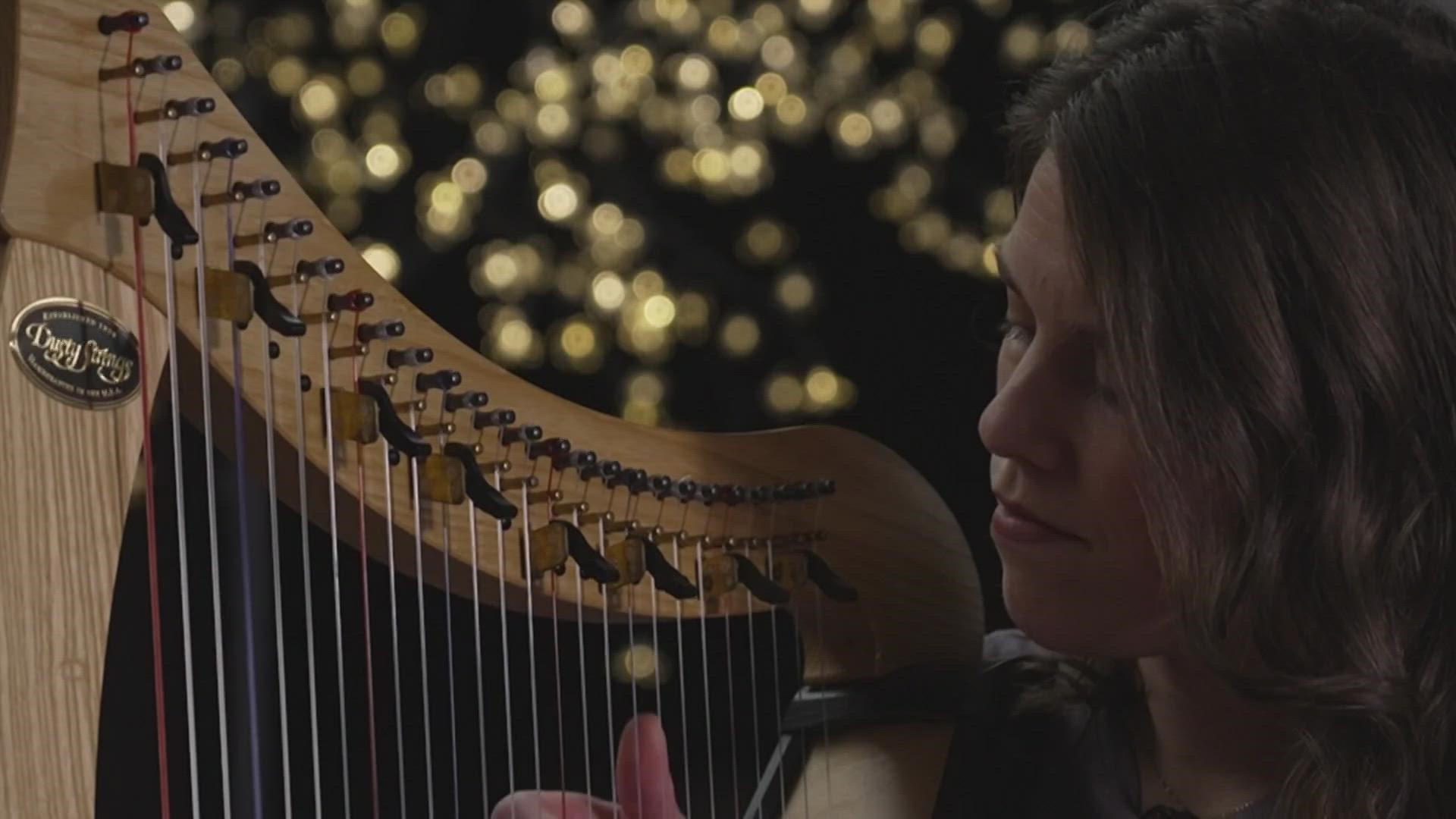SEATTLE — A dim prognosis, a motor skills disorder, grief or just stress and anxiety: no matter what the case may be, a quickly growing form of therapy could have you singing a new tune.
Currently in Washington, music therapists are not eligible for state licensure. But on Thursday, Senate Bill 5214 was introduced and there is a new push in the legislature to change that.
Music therapy is defined by using music to address the physical, emotional, cognitive, and social needs of a patient.
"Trained musicians use music in a functional, intentional way to meet therapeutic goals," said Carlene Brown, Professor of Music and Director of Music Therapy at Seattle Pacific University. "So it really does depend on the client."
Brown describes music as a "medium" when applied to clinical practice, and said it can be used to help patients of Multiple sclerosis, for example, or those suffering from other conditions affecting motor skills.
"Someone who has had a stroke and needs to regain their gait, music and rhythm is a great way to work with the nervous system and centralize," said Brown.
It can also help those suffering from anxiety, depression or other mental health conditions, according to Betsy Hartman, board-certified music therapist and founder of PNW Music Therapy. Hartman said the proposed legislation would broaden access to the therapy, because currently the way patients can access music therapy is often, "through private practices or private companies... most of the time, patients have to pay out-of-pocket and that's a huge expense."
She said that can cost anywhere from $50 to $250 dollars per session, but the bill would allow music therapists to begin accepting insurance.
"It makes music therapist services more affordable and accessible for every Washington resident," said Hartman.
Patients testified in support of the legislation Thursday; specifically, for the ways in which Hartman's work has helped them. One woman said she has been diagnosed with breast cancer.
She told legislators, "Betsy's professional and thoughtfully curated sessions have greatly reduced my anxiety levels and introduced new coping skills."
Hartman recognizes music therapy may at times be misunderstood.
"We've all experienced listening to a song that makes us feel good," she said.
Where the therapist comes in, however, is implementation for specific needs.
"I work alongside psychiatrists, social workers, doctors, nurses," said Hartman, who described her work as a "holistic" approach to her patient's needs.
"Our goal is let us tap in to the power of music to help you accomplish your clinical goal, your therapeutic goal," she added.
Now, her goal is to get this bill passed into law.
"We are really optimistic."
Hartman was one of the first graduates of Seattle Pacific University's accredited undergraduate music therapy degree program.
Currently, a board certification process exists for the profession in Washington. Brown said there is a lengthy process to earn the designation as a music therapist in Washington state.
"It's a four-and-a-half year program, where students take a number of classes outside of just being a musician, to understand how music could influence physiologically and psychologically a person. And then there is a six month full-time clinical internship that they must fulfill. And then they must sit for a three hour board exam, a national board exam, to earn the designation of board-certified music therapist," Hartman explained.
Senators Frame, Cleveland, Conway, Hasegawa, Lovelett, Nobles, and Wilson, C. are sponsoring the bill.

